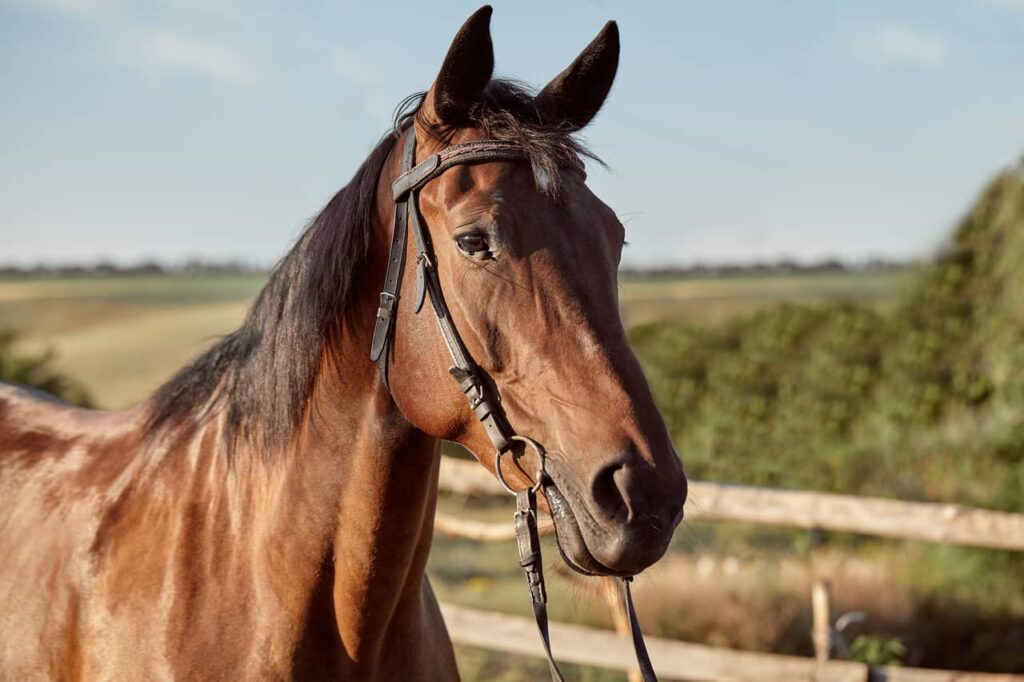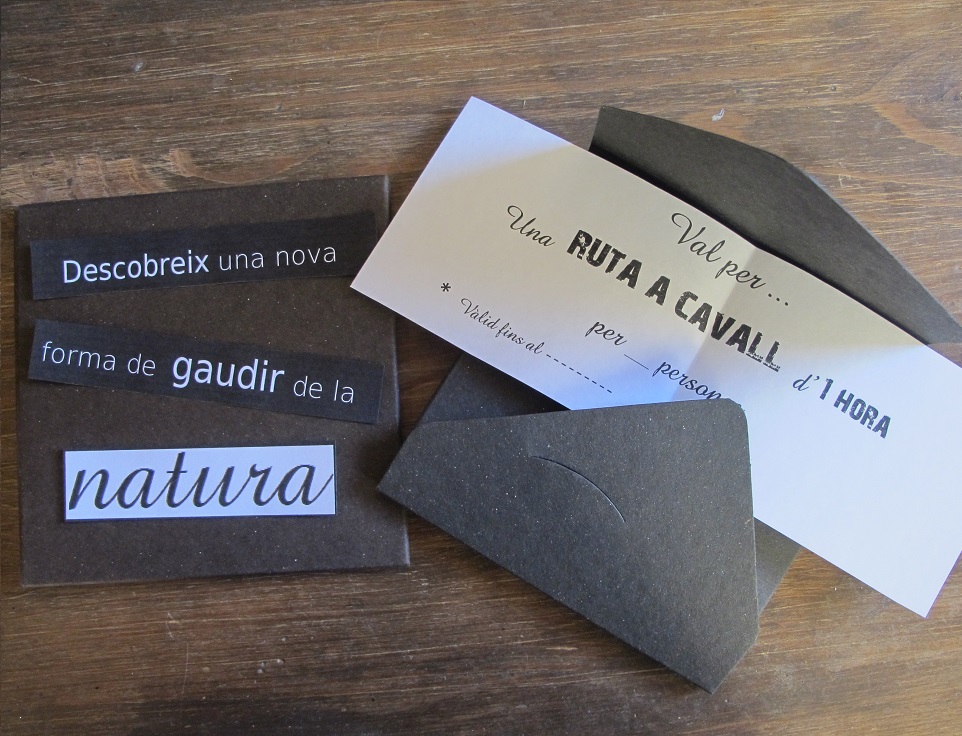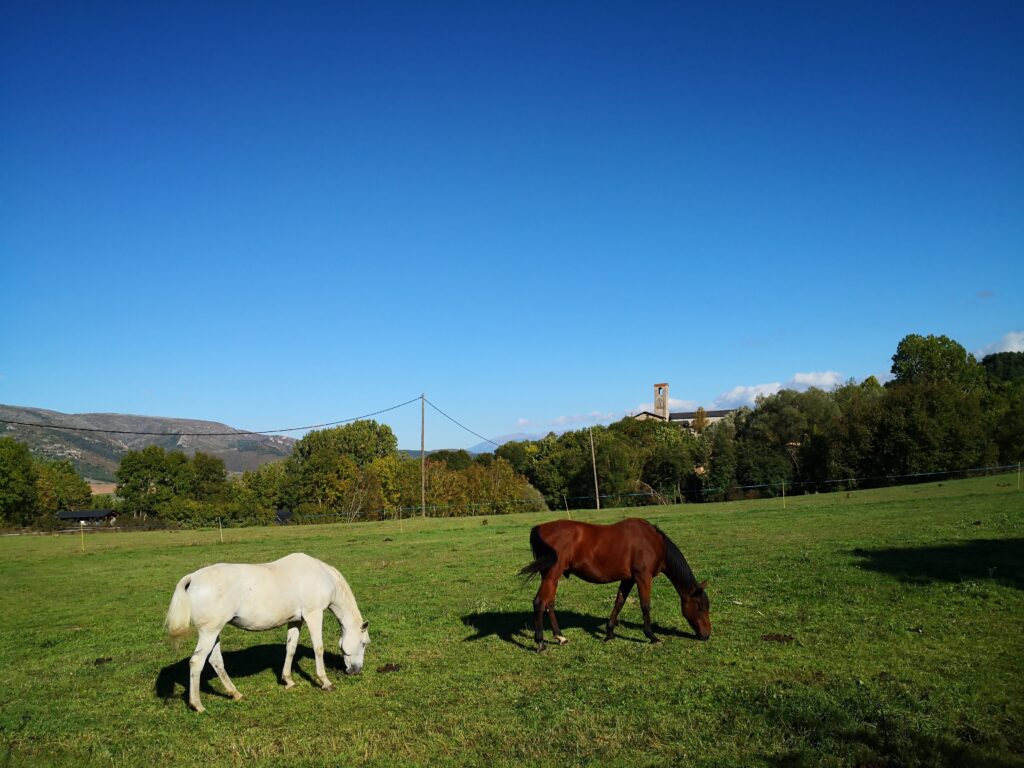The importance of equine nutrition
Horse nutrition is a vital aspect of their health and well-being. Horses are herbivorous animals and their natural diet consists of pasture and forage. However, horses' diets vary according to their age, weight, activity level and general health
Food categories that are part of horse nutrition
It is important to understand the different categories of food that are part of a horse's diet. These categories include fodder, grains, minerals and vitamins, and supplements. Let's see each of them in detail:

The digestion of horses
To understand horse nutrition, it is important to understand how their digestive system works. Horses are herbivorous animals with a small stomach and a large cecum. This digestive structure allows them to digest fibrous foods such as hay and pasture. Horses also have a constant need to eat, as their digestion is continuous.
When horses eat, their saliva contains enzymes that aid in the digestion of food. Food passes through your esophagus and into your stomach, where it mixes with digestive acids and is broken down into small particles. These particles enter the cecum, where beneficial bacteria ferment them. Nutrients are absorbed into the bloodstream through the walls of the cecum and transported to the cells of the body.

Give away Experiences
Surprise by giving away routes and riding lessons
Amount of food that horses need
The amount of feed horses need varies according to their age, weight, activity level and general health. Young horses, for example, need more protein for growth, while old horses need a higher fiber diet. Horses with high activity levels need more calories, while sedentary horses may require less.
To determine how much feed your horse needs, you can use a basic formula that is based on its weight. The most common formula is to give horses one to two kilos of feed for every 100 kilos of body weight. You can also consult an equine nutritionist for advice on the right amount of feed for your horse.
articles

The rich history and culture of horses in Cerdanya

The horse breeds of Cerdanya

what do horses eat
The importance of equine nutrition
Horse nutrition is a vital aspect of their health and well-being. Horses are herbivorous animals and their natural diet consists of pasture and forage. However, horses' diets vary according to their age, weight, activity level and general health.
Food categories that are part of the horse's diet
It is important to understand the different categories of food that are part of a horse's diet. These categories include fodder, grains, minerals and vitamins, and supplements.
fodder
Forages are the basis of the horse's diet. Pasture and hay are the most common forages, providing fiber, protein and carbohydrates. If there is not enough pasture or hay available, horse owners can opt for other types of forage such as alfalfa, timothy grass, etc.
Cereals
Cereals are another important source of nutrients for horses. The most common grains fed to horses are barley, oats, and corn. However, it is important not to give horses too much grain as this can lead to health problems such as colic and laminitis.
Minerals and vitamins
Minerals and vitamins are essential for the well-being of horses. Deficiencies in these nutrients can lead to health problems such as hair loss, low resistance to disease and growth problems. Minerals and vitamins can be obtained through forages and grains, but horse owners can also choose to give their animals mineral and vitamin supplements.
supplements
Supplements are an additional source of nutrients for horses. They are used to meet the specific needs of animals, such as health problems or special nutritional needs. The most common supplements for horses include minerals, vitamins, fish oil and probiotics.
How to determine your horse's nutritional needs
In determining your horse's nutritional needs, it is important to consider factors such as his age, weight, activity level and general health. You can also consult with a veterinarian or equine nutritionist to determine your horse's specific needs.
Of course, I can provide you with more information about equine nutrition so that you can demonstrate that you are an expert in this area.
The digestion of horses
To understand horse nutrition, it is important to understand how their digestive system works. Horses are herbivorous animals with a small stomach and a large cecum. This digestive structure allows them to digest fibrous foods such as hay and pasture. Horses also have a constant need to eat, as their digestion is continuous.
When horses eat, their saliva contains enzymes that aid in the digestion of food. Food passes through your esophagus and into your stomach, where it mixes with digestive acids and is broken down into small particles. These particles enter the cecum, where beneficial bacteria ferment them. Nutrients are absorbed into the bloodstream through the walls of the cecum and transported to the cells of the body.
Amount of food that horses need
The amount of feed horses need varies according to their age, weight, activity level and general health. Young horses, for example, need more protein for growth, while old horses need a higher fiber diet. Horses with high activity levels need more calories, while sedentary horses may require less.
To determine how much feed your horse needs, you can use a basic formula that is based on its weight. The most common formula is to give horses one to two kilos of feed for every 100 kilos of body weight. You can also consult an equine nutritionist for advice on the right amount of feed for your horse.
The risks of overfeeding
It is important not to overfeed horses as this can lead to health problems such as laminitis, colic and obesity. Laminitis is an inflammation of the hoofs that can be painful and can limit a horse's ability to move. Colic is abdominal pain that can be severe and, in some cases, fatal. Obesity is a condition that can lead to long-term health problems such as diabetes and heart disease.
Of course, I can continue to expand on the topic of good practices in horse feeding.
Good practices in horse feeding
Provide your horses with a balanced diet that includes good quality hay or pasture, along with a suitable concentrate to meet your horse's specific nutritional needs.
Provide fresh, clean water at all times. Horses need to drink an adequate amount of water to stay hydrated and to keep their digestive system working.
Provide your horses with adequate access to pasture. Horses are herbivorous animals and need to eat constantly to keep their digestive system functioning.
Feed your horses frequently, in small amounts. Horses have a small stomach and a large cecum, which means they need to eat small amounts constantly to keep their digestive system working.
Don't overfeed your horses. Horses that overeat can develop health problems such as laminitis, colic and obesity.
Give your horses nutritional supplements only if they are needed. Nutritional supplements are not necessary for most horses if they are fed a balanced diet. Consult with an equine nutritionist to determine if your horse needs supplements.
Keep feeding areas clean and tidy. This will help prevent health problems such as bacterial contamination.
Consult with an equine nutritionist to determine your horse's specific nutritional needs. Horses have unique nutritional needs based on factors such as their age, weight, activity level and overall health.
conclusion
In short, horse nutrition is a crucial aspect of maintaining the health and well-being of your animals. Provide a balanced diet that includes good quality hay or pasture, along with a suitable concentrate to meet your horse's specific nutritional needs. Make sure your horses have adequate access to water and pasture, and keep feeding areas clean and tidy. Consult an equine nutritionist for advice on the appropriate amount of feed and the specific nutritional needs of your horse. By following these best practices in horse nutrition, you can prove that you are a horse nutrition expert and keep your horses happy

